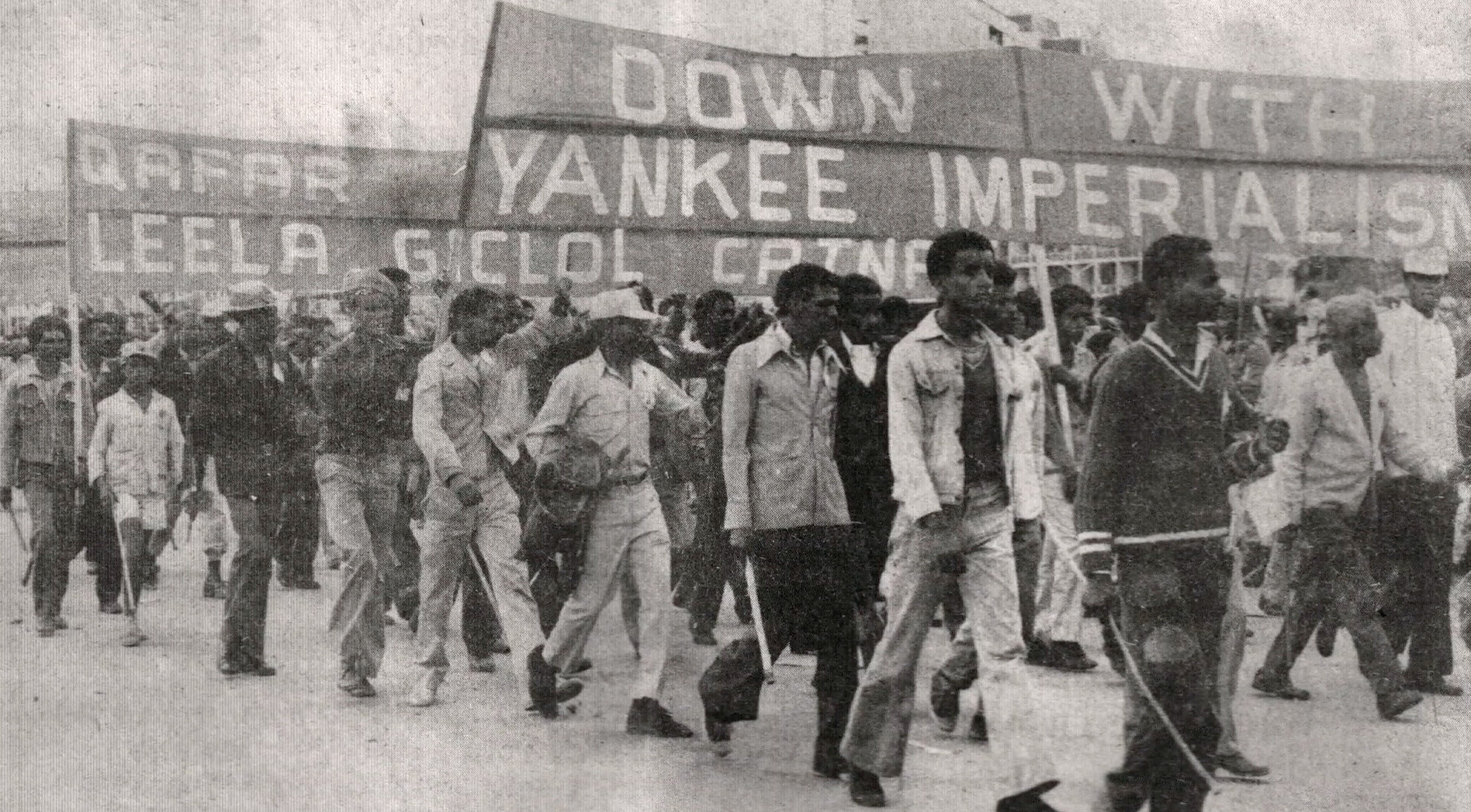Finding Sally: Riveting Doc Traces Family’s Search for a Lost Aunt… And the Truth
By Linda Barnard
Rating: B
With the postponement of this year’s Hot Docs International Film Festival because of the coronavirus crisis, the Canadian Broadcast Corporation is airing a selection of films that would have been screened at this year’s festival.
Staunch women, declared Little Edie Beale in the Maysles brothers’ 1976 documentary Grey Gardens, don’t weaken. No matter what. So it is with Canadian-Ethiopian filmmaker Tamara Mariam Dawit and her aunts, the four formidable sisters at the heart of her documentary, Finding Sally.
They have a long-held family secret to share and a means to do it through Dawit’s lens.
An ex-Ottawa University student becomes one of Ethiopia’s most wanted revolutionaries in Finding Sally
Dawit knew her Ethiopian aunts as creative, educated, politically engaged women who were raised in privilege in both Ottawa and Addis Ababa, daughters of a diplomat who served under Ethiopian Emperor Haile Selassie. In fact, he was Selassie’s godson.
But Dawit didn’t know about her vivacious fifth aunt Selamawit, the one they called Sally, the life of the party with a political spirit and a tender heart. Married to a revolutionary leader, she disappeared after going underground with him at age 23 during a period of violent military dictatorship in Ethiopia, both wanted as members of the Ethiopian People’s Revolutionary Party.
It took 10 years for the aunts to learn Sally had died in a remote northern village. But knowing how and why eluded them.
Dawit, who was born in Ottawa and now lives in Addis Ababa, first heard about Sally on a trip to Ethiopia when she was 30, a journey sparked by her desire to learn more about her African heritage. She discovered a photo hanging over the fireplace in her grandmother’s house. Who was the beautiful young woman with the charmingly crooked smile and towering beehive hairdo?
Finding Sally reveals a fascinating family story, one Dawit uncovers with the help of her aunts as she unravels the 30-year-old mystery behind Sally’s disappearance.
The documentary also examines of Ethiopia’s lesser-known, troubled political history, told through news footage and photos.
Dawit’s grandmother and her aunts were reluctant to talk about Sally and her disappearance over the years, repressing memories as part of the culture of silence that grew up around the terrifying time in the 1970s after Selassie was deposed by a military coup. Their father was considered a counterrevolutionary by the new totalitarian regime. The brutality of the Red Terror followed, where some 500,000 young people protesting for change were murdered under military dictator Mengistu Haile Mariam.
The fascinating aunts are worthy of their own documentary, but given the 75-minute runtime of Finding Sally, Dawit isn’t able to devote much time to their stories. Former UN aid worker Menbere is the family historian. Tsion is a retired teacher. Kibre is an artist and Ethiopia’s first Transcendental Meditation teacher.
I’m fascinated by Brutawit, the former senior banker, now a current-affairs TV show host, who ignores the risks of exposing corruption. Like Sally, the aunts are politically engaged and dedicated to the lessons their father taught them about the need to serve their country.
It’s why they all ended up eventually returning to Addis Ababa from Canada. They had moved there as a family when their father was posted to the newly opened Ethiopian embassy in 1968. The aunts, including Sally, stayed to finish university when he was transferred to the Ethiopian embassy in Sudan.
They tell stories sticking out as a rarely seen Black family in white Ottawa. One person even asked if they were The Supremes. Then-Prime Minister Pierre Trudeau danced with their mother at an event, complimenting their father on his beautiful daughters. The diplomat was not amused.
Dawit and her aunts eventually visit the village where Sally was believed to have stayed and worked in the community. The aunts stand on the edge of a terraced valley and call out to her in high voices across the vast space, unyielding, staunch women.
Finding Sally. Written and directed by Tamara Mariam Dawit. Airs April 30, 8 pm on CBC and CBC Gem; 9 p.m. on Documentary Channel.


